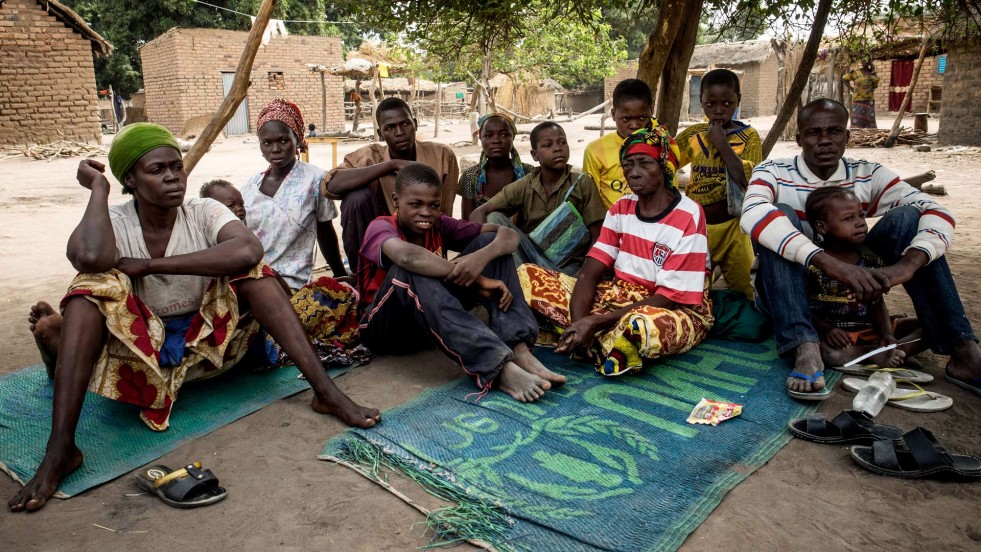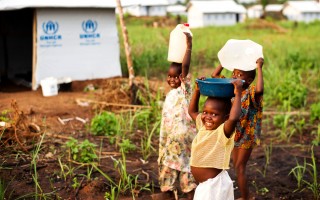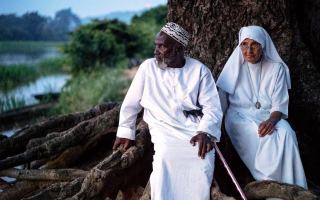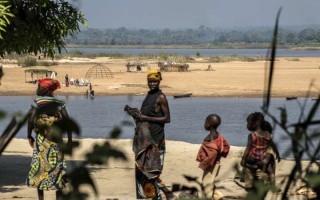Time seems to have stopped in Dilingala, a sleepy farming village in southern Chad. But for many local residents, including 40-year-old Nicolas, life is forever changing.
The violence ravaging the Central African Republic, just 50 kilometres from here, spilled over into Dilingala a year ago. Now, Nicolas hosts a refugee family whose home was burnt down, their cattle and property stolen. “People from Central Africa are our brothers,” he says. “They gave us shelter when our own country was at war. We owe them hospitality.”
Nicolas has turned over one of his eight cabins to a refugee family: Jacob, his two wives, their five children and his mother. They are restarting their lives with the help of Nicolas and other local villagers, as well as UNHCR and its partners. “With nine other households, we constitute a grouping,” Jacob explains, smiling. “We received from the Lutheran World Fund [LWF, a UNHCR partner] two oxen, a plough and a cart, and a set of axes and sickles. During the rainy season, we use the oxen in turns to plough our fields.”
The cattle and gear were provided in the form of a loan valued at 400,000 CFA francs, or about US $660. Jacob and his associates must pay it back in instalments once they start earning some revenue. The hope is that, through income-generating activities, refugees will become self-reliant—a necessity while conflict drags on in the Central African Republic and returning home remains impossible.
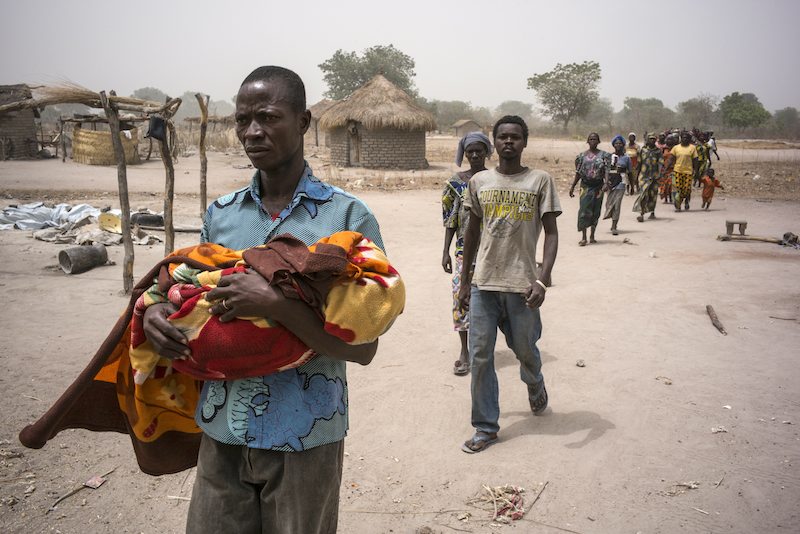
Followed by villagers and fellow refugees from the Central African Republic, a grieving father carries the body of his eight-year-old daughter, who died of unknown causes. ©UNHCR/Olivier Laban-Mattei
Jacob and his family are among 500 refugees from the Central African Republic now living in Dilingala, joining the town’s 11,000 Chadian residents. Altogether, 16 local communities have take in 6,500 refugees since September 2013.
Having been farmers back home, Jacob and his family know how to grow millet, groundnuts and sesame. But their crops are still too meagre to feed the children. Even after bi-monthly food provisions from UNHCR and the World Food Programme, refugees must still rely on the generosity of locals like Nicolas, who, from the very beginning, offered everything they could. “We eat less and share our meals,” Nicolas explains.
In addition to 19 refugee groupings, there are nine others made up exclusively of locals—who also need support in times like these. Nicolas himself belongs to one of them. “With the equipment provided by LWF, I have managed to increase production and improve my life,” he says.
By supporting refugees and their host communities alike, the programme helps to prevent envy and resentment between the two communities. Both villagers and newcomers have received building materials, such as thatch and straw bales to repair huts. UNHCR and its NGO partners have also built wells, latrines, storerooms and schools. “The success has been such that there is a real demand from villages to host refugees,” says Jean Bosco, a UNHCR programme officer based in Gore, Chad.
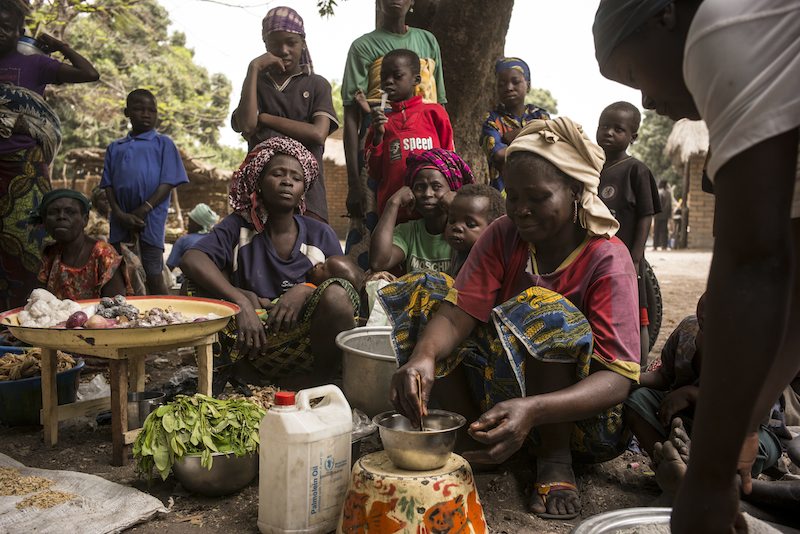
Céline, a 35-year-old refugee from the Central African Republic, sells her homemade oil in Dilingala’s marketplace. ©UNHCR/Olivier Laban-Mattei
To ensure social harmony, UNHCR avoids settling refugees in a village where they would outnumber more than a third of the Chadian population. Limiting the number of refugees in each community also helps reduce the impact on natural resources, especially scarce firewood. Longstanding cultural similarities also contribute to successful integration.
“We speak the same dialect and have the same Christian and animist beliefs,” says David, a representative for the refugees in Dilingala. He points to a sacred forest that is said to be inhabited by Dilé, the tree spirit. “Central Africans don’t dare cut wood from that forest either. They’re afraid of bringing some misery upon the village.”
Refugees here also acknowledge the authority of the local ‘earth-priest’. “Like the Chadians, we make him offerings so that in a few months there will be abundant rain,” says David.
In Dilingala’s main square, under the shade of mango trees, the market is in full swing. “It is much livelier than before the Central Africans arrived,” an old man says. Refugees and locals here receive credits to start small businesses. “I got 26,000 CFA francs [about US $43] from LWF,” says Ernestine, 32, a divorced mother of five. “Enough to buy flour, oil and sugar. I now sell donuts and can make up to 1,000 francs [US $1.66] a day.”
Refugees who do not receive LWF loans usually work in the fields, employed by locals at a rate of about 250 francs a day – less than US $3 a week. The extra workers are especially welcome during the tough cotton harvest. Economically, the district is thriving.
Nicolas, Jacob’s host, is optimistic for the future. “In two or three years’ time, God willing, Jacob and his family will be self-sufficient.”
By: Baptiste de Cazenove



